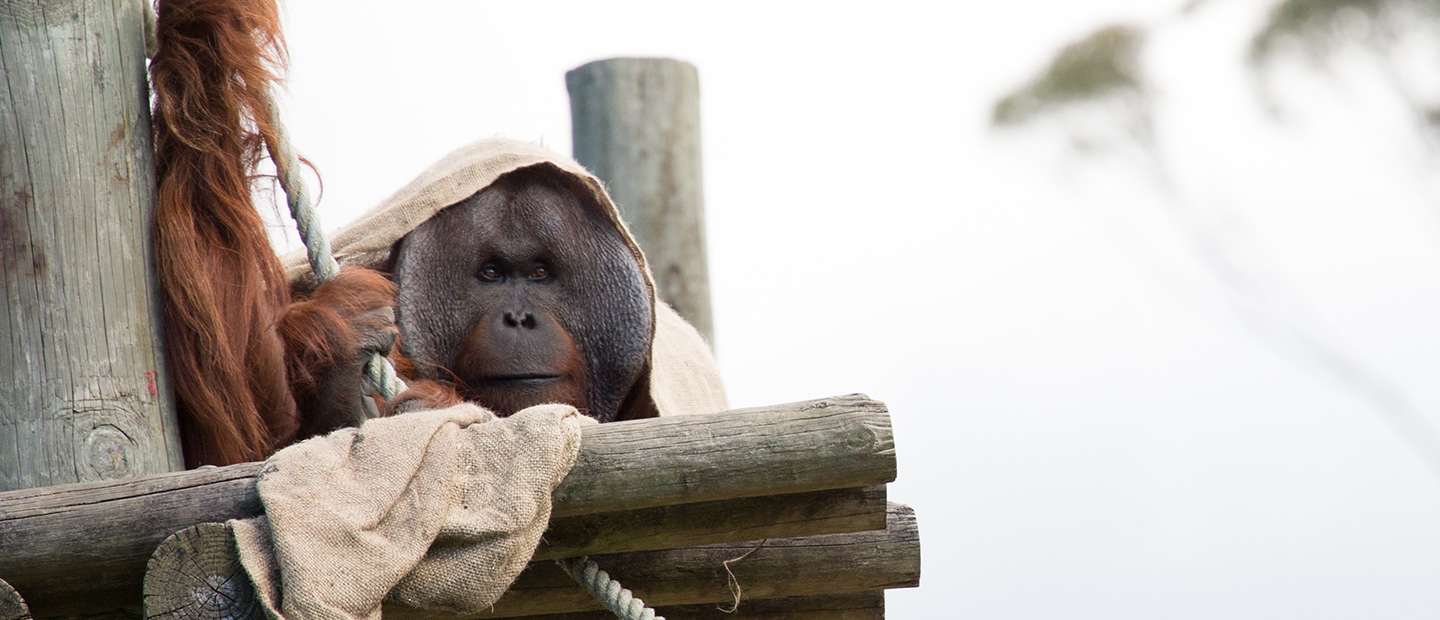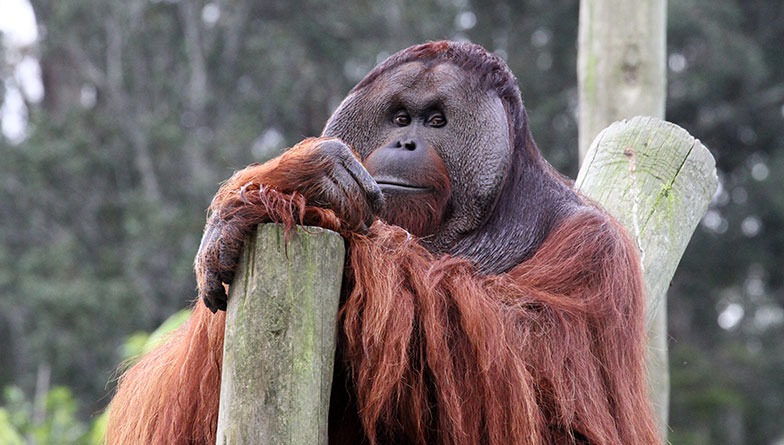Orangutan are currently divided into two species, the Bornean orangutan and the Sumatran orangutan. Both critically endangered, the Sumatran orangutan is at extreme risk of being the first great ape to become extinct in the wild with only 6,600 (approx.) individual animals remaining. Both species are on the IUCN Red List of Threatened Species, a list of the world’s most endangered species that is kept and updated by the World Conservation Union.
Over six and a half million acres, the Leuser Ecosystem in Indonesia is home to a bio-diverse range of animal life and is one of the only intact areas of rainforest left in Southeast Asia. Despite this land having ‘protected’ national status, swathes of forest are cut down for industrial use for palm oil, timber, pulp and paper plantations. The greatest threat to the Bornean and Sumatran orangutans is the destruction, degradation and fragmentation (road clearing) of their rainforest habitat. Hunting is also a major threat, although killing orangutans is illegal, many animals are killed from starvation or in fires when forests are cleared to make way for oil palm plantations. Mothers are often killed for their babies as they are then on-sold in an illegal pet market.
The Auckland Zoo Conservation Fund partner with The Sumatran Orangutan Conservation Programme (SOCP) to support conservation and protection of wild orangutans.
The Sumatran Orangutan Conservation Programme works on all aspects of Sumatran orangutan conservation. This includes:
- Rescue, quarantine and reintroduction of illegal pet orangutans to form new, genetically viable and self-sustaining wild populations
- Surveys and monitoring of wild and reintroduced populations
- Research on conservation and behavioural ecology of wild orangutans
- Habitat conservation
- Conservation education and awareness raising.



